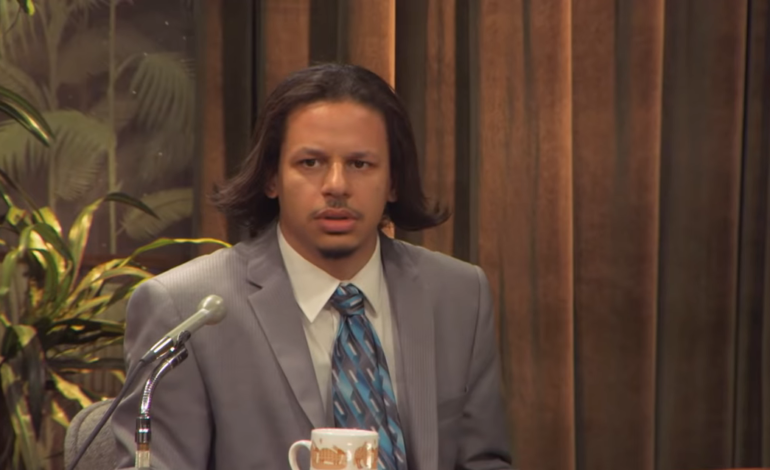

Comedians Eric André and Clayton English filed a lawsuit against the Clayton County Police Department in claims of racial profiling. According to CNN, in April 2021, Eric André (The Eric Andre Show, Sing 2) was stopped by Clayton County Police Department officers as he attempted to board a flight from Atlanta to Los Angeles at Hartsfield-Jackson Atlanta International Airport. A few months earlier, this same situation happened with another Black comedian by the name of Clayton English (Preacher’s Kid, Hawkeye) in the same airport.
“Police officers came out of nowhere in like, almost like an ambush style and started, singled me out. I was the only person of color on the jet bridge at the time,” proclaimed André in a news conference Tuesday.


According to The New York Times, Eric André cleared security at the airport, gave the gate agent his boarding pass, and was footsteps away from stepping onto the plane when he was allegedly stopped by police officers. The officers allegedly pressed André about whether he was selling drugs and what drugs he had in his possession and asked to inspect his bag. When André questioned whether he was obligated to comply, the officers told him no and André was ultimately cleared to board his plane.
“It was clearly racial profiling. The experience was humiliating and dehumanizing, degrading, I had all the other passengers squeezing by me on this claustrophobic jet bridge gawking at me like I was a perpetrator,” André said.
The Atlanta Police Department — not the Clayton County Police Department — is the primary law enforcement agency at the airport, the airport said in a statement. “APD has a robust drug interdiction program but, unless otherwise required, does not engage in jet-bridge stops of passengers,” the statement said.
Officers also stopped English on a flight to Los Angeles as well, in October 2020.
“I was almost on the plane when, in the jet bridge two officers popped out, showed their badges and started asking questions whether I had illegal drugs like cocaine, and I feel cornered in a jet bridge and I felt the need to comply,” English expressed in the news conference.
A lawyer involved in the suit named Richard Deane said that the reasoning behind the stops appeared to be to seize money and that the stops were made largely, if not solely, based on race.
Barry Friedman, founding director of New York University’s Policing Project and another lawyer on the case said, The suit maintains the police violated the constitutional protection against unreasonable searches and seizures and the equal protection clause, which guarantees racial equality and prohibits racial discrimination.”
Civil asset forfeiture permits law enforcement to confiscate property they allege is associated with a crime.
“People may feel the need to say yes, and it’s a coerced sense of giving consent as opposed to a freedom of saying no and then feeling like everyone is going to suspect they had drugs on them,” noted Gloria J. Browne-Marshall, a fellow and visiting professor at Harvard Kennedy School. “Courts have favored law enforcement in cases of consent versus coercion.”
“When two cops stop you, you don’t feel like you have the right to leave, especially when they start interrogating you about drugs. The whole experience was traumatizing. I felt belittled,” André revealed. “I want to use my resources and my platform to bring national attention to this incident so that it stops.”
